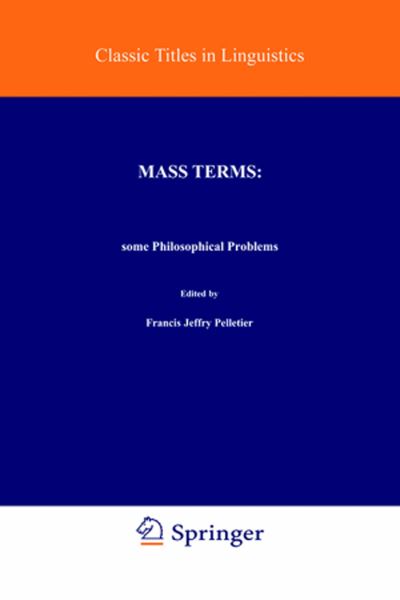
I. MASS TERMS, COUNT TERMS, AND SORTAL TERMS Central examples of mass terms are easy to come by. 'Water', 'smoke', 'gold', etc. , differ in their syntactic, semantic, and pragmatic properties from count terms such as 'man', 'star', 'wastebasket', etc. Syntactically, it seems, mass terms do, but singular count terms do not, admit the quantifier phrases 'much', 'an amount of', 'a little', etc. The typical indefinite article for them is 'some' (unstressed)!, and this article cannot be used with singular count terms. Count terms, but not mass terms, use the quantifiers 'each', 'every', 'some', 'few', 'many'; and they use 'a(n)' as the indefinite article. They can, unlike the mass terms, take numerals as prefixes. Mass terms seem not to have a plural. Semantically, philo- sophers have characterized count terms as denoting (classes of?) indi- vidual objects, whereas what mass terms denote are cumulative and dissective. (That is, a mass term is supposed to be true of any sum of things (stuff) it is true of, and true of any part of anything of which it is true). Pragmatically, it seems that speakers use count terms when they wish to refer to individual objects, or when they wish to reidentify a particular already introduced into discoursc. Given a "space appropriate" to a count term C, it makes sense to ask how many C's there are in that space.
| ISBN: | 9789027709318 |
| Publication date: | 31st March 1979 |
| Author: | Francis Jeffrey Pelletier |
| Publisher: | Springer an imprint of Springer Netherlands |
| Format: | Hardback |
| Pagination: | 305 pages |
| Series: | Studies in Linguistics and Philosophy |
| Genres: |
Linguistics Philosophy of language Grammar, syntax and morphology |